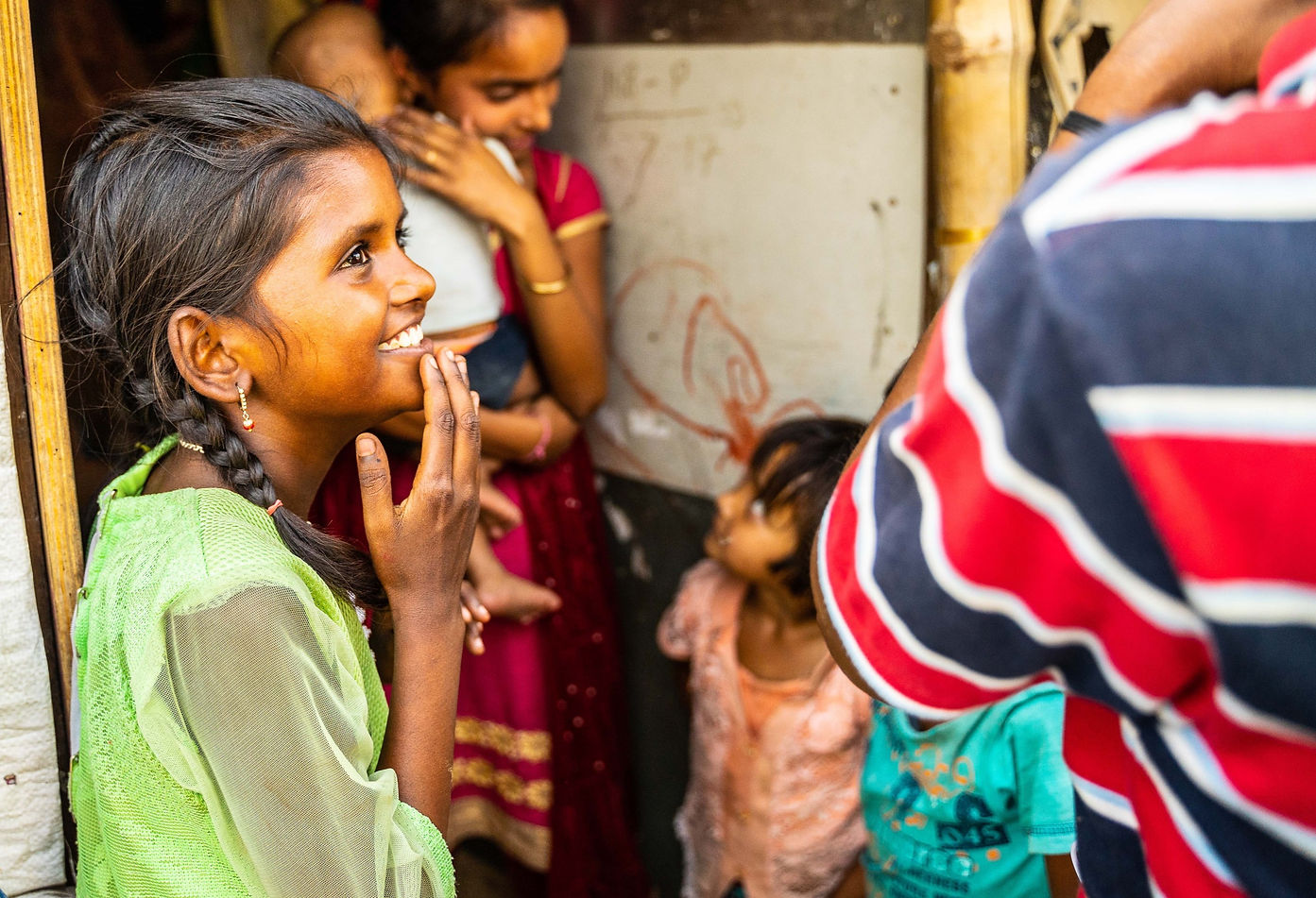
JanPragati is a noble initiative by young people. This love movement has its origin when a group of young friends witnessed the horrors of poverty. In 2007, there were heavy monsoonal rains wherein, at a particular area of Lucknow, waters of massive proportion usurped the hamlets of many poor people who lived along the banks of a sewage canal. While serving food to displaced families with children, these young people witnessed the crippling hands of the poverty. They were also affected wholesomely. The impact then grew stronger to a passion to serve the poor. However, though the nascent passion still gripped the serving spirit of these youngsters, a concrete idea or plan for selfless service did not materialize until early 2011. By then, these youngsters had already formed a small group named Last Stitch. They were united through the charitable teachings of Jesus. What inspired them was Jesus’ exhortation to transform the community with the Love of God. This was the birth of JanPragati. They did not have to wait long before opportunity knocked at their door.
Launched on the auspicious National Children’s Day (November 14) in 2011, JanPragati began a small school of 15 children, sitting under the shelter of a bare tree. The history of this movement traces back to a daunting search for a particular slum boy. In that particular search, we accidentally came across a group of families clumped together in a settlement in Gomti Nagar Extension, near the present day Shaheed Path. There were children all around, and they clustered around us, as if to ask us to help them. Not a single child was going to school. On inquiry, we saw the opportunity to make a difference. This is the story of Pragati Paathshala.
Those were the dark days of JP, where our immature understanding made little progress. As much as it was a noble work, there was no direction. We were just taking a stroll through social work. It took around two years for us to understand the culture and social dynamics of the slum. Further research made clear a few things: these people were isolated even within the crowded urbanity. Therefore, any form of education would have to to be informal and within the friendly ambience of the slum. Most families were dysfunctional, with abuse often being considered normal. Education for children would not have any effect until families, and consequently the community as a whole, were to be socially reformed.
These experiential illuminations resulted in the creation of an indigenous and sui generis form of education system by us, particularly catering to the needs of slum dwellers. A second result was the beginning of a new programme named Bhamini.
We began Bhamini as a program for mothers, but only as a means to help their children. If the mothers were helped, there was a better chance for children’s education bearing fruit. However, we soon realized that the mothers’ lives were often broken by the subjugation and abuse that existed in the slum. Reckoning the enormity of women’s issues within the slums, our hearts were moved to help women; not simply for the children, but for the women themselves. Our women needed to be empowered in their self-esteem and equality with men. We do not teach our women to be perfect; we teach them to be brave.
While these two programmes were running successfully, a third movement was slowly making its way. The movement, christened as Sanctity of Life, centered on the question of the value of life. It was more an ethical question which had to clarified. We were particularly keen on the question of foeticide. Once the debatable line was drawn between the black and white areas, there was no turning back: someone had to do something about it. Again, the gigantum of the problem in India loomed large above our heads. To work out the idea, educational institutions were first targeted and the question was widely debated at academic venues. In gradual time, two other topics were introduced; namely Sexual Abuse and Pornography. As a final note to our history, we started providing a helping hand for people who are in such needs. This involved caring for pregnant and sick women, providing a Safe Haven for women in Crisis Pregnancy, counselling people addicted to pornography and assisting victims of sexual abuse.
While we might be interested in beginning any new projects, the one desire that remains with us in to expand our existing ones to other cities of India. We have gone through struggles and victories. Our experiences, accompanied by academic research, have enriched our programmes. We would not want to keep it constrained to Lucknow alone. There are far many paths yet to tread, there are many oceans left to sail.
Today 10 years later, we're still proud to be a people who are bringing dignity, justice, and beauty to families by alleviating poverty. JanPragti is non-profit organization registered as a Social Charitable Trust.
THROUGH THE ANNALS…

OUR VISION
All See Imago Dei In All
We believe that every human, both male and female is created in the image of God. This implies that every human reflects the glory and handiwork of the creator God.
Thus every human deserves to live his/her life in its fullness and is the owner of a reasonable dignity. Our vision extends to allow and encourage 'ALL' to see this image in 'ALL'

OUR MISSION
Bringing Beauty, Dignity, and Justice to families by alleviating poverty.
JanPragati strives for excellence in its functioning and organizational structure. The organization is an embodiment of honest and selfless service, which has pervaded even the administration ambiance.
Therefore we follow a strict employment equality and affirmation action statement, which is rather an oath taken by its management and employees.
